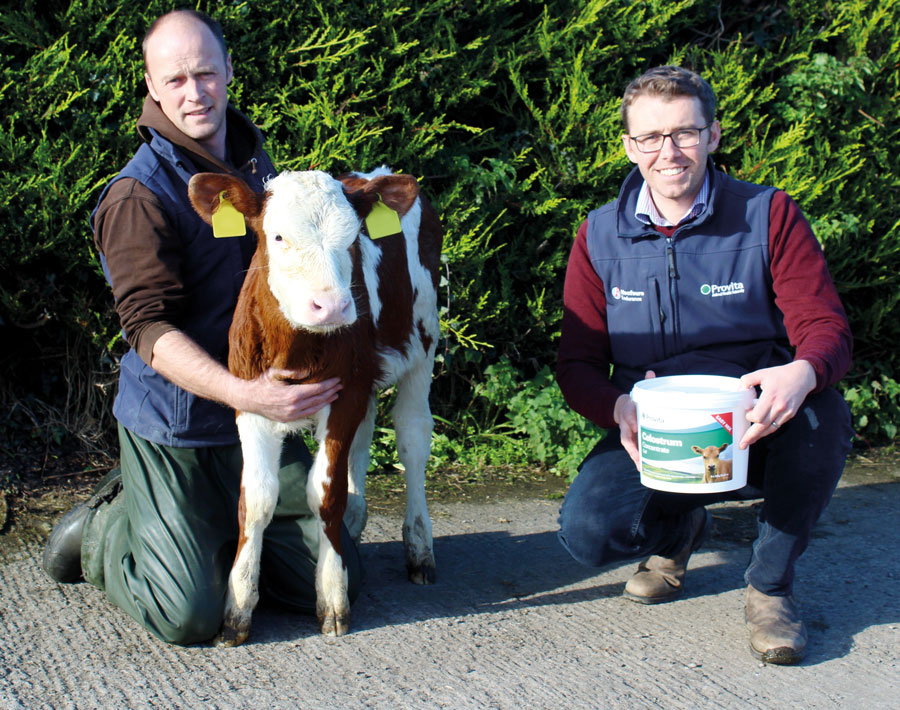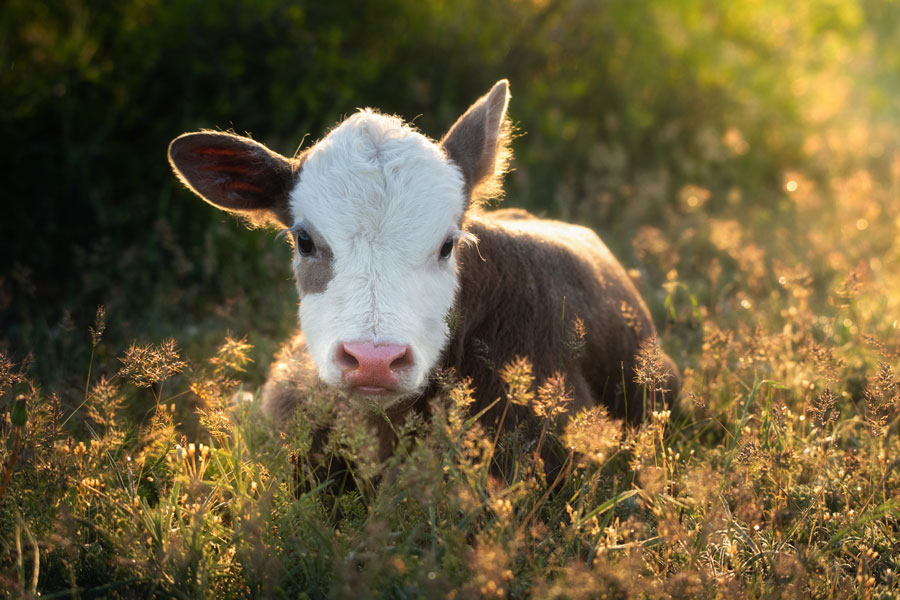Rising number of dairy farmers turn to colostrum replacements to tackle Johne’s
31st December 2021
With 80% of Johne’s disease infections occurring within the first month of life, the growing threat of Johne’s in the UK is encouraging significant numbers of dairy farmers to offer bespoke colostrum replacements to newborn calves.
Northern Ireland milk producer John McGaffin (pictured left), who farms with his father Hubert, milks 125 mainly autumn calving cows – a mix of Holstein and Ayrshires. The herd is currently averaging 8,800 litres per lactation, based on a three-times-per-day milking regime.
“The milking cows are currently receiving 2.8t of concentrates per lactation,” John says. “We aim to produce and rear all our own replacement heifers.”
The McGaffins are completely committed to giving all calves the best possible start, but up until a few months ago, they were having a significant problem with ill thrift and premature deaths in the calf house.
John explains: “No matter what we tried, a significant number of the calves failed to meet the growth targets that we had set for them.
“Johne’s is a growing problem on dairy farms across Northern Ireland. But that issue aside, I was always concerned that the colostrum produced by our cows wasn’t up to spec on all occasions.”
He continues: “Some months ago, the decision was taken to feed a bespoke colostrum concentrate to each newborn calf. On the back of the research carried out, we opted to go with Provita’s Calf Colostrum Concentrate. And we haven’t looked back since.
“Each calf born on the farm is now stomach tubed with the product immediately after birth. Making it up couldn’t be easier: it’s a case of mixing the powder with warm water, according to the straightforward instructions on the sachet.
“The calf then receives mother’s colostrum for the following couple of days, as would be the normal procedure with a freshly calved cow and her calf.”
According to John, the survival rate and vitality of the calves receiving the Provita product has increased manifold since the new colostrum feeding regime was introduced.
“The difference truly is day and night. Problems related to premature mortality, scours and pneumonias have fallen away to almost nothing with calf survival rates up to weaning now at 98% of all births on the farm.
“Opting to use the Provita Calf Colostrum Concentrate was one of the best decisions that we have taken on the farm over recent years.”
Provita Calf Colostrum Concentrate provides a high level of natural EU-sourced colostrum, with added egg powder proteins, beneficial bacteria and vitamins carried in a nutritional energy source. It is formulated to supplement colostrum from the dam or where access to natural colostrum has not been possible. With 2.5 billion beneficial bacteria per application, they physically exclude harmful pathogens from attaching to the gut wall and improve digestion.
The product is high in fat soluble vitamins A, D and E to compensate for the inefficient placental transfer of these vitamins. Its nutritional base provides instant and slow-release energy, allowing the calf to suckle quicker. It’s easy-mix formula makes it fast and practical to use.
Provita technical advisor George Shaw (pictured right) recently visited the McGaffin farm. “The colostrum concentrate works at two levels. First off, it is a high-quality product that has consistently proven itself on farms over many years. It provides newborn calves with a high level of protection in order to maximise health and performance levels in the weeks directly after birth,” he comments.
“Significantly, the product also acts to break the Johne’s cycle within a herd. Newborn calves are exposed to infection from the get-go, courtesy of their mother’s colostrum, assuming the dam is a Johne’s carrier.”
George concludes: “Provita Colostrum Concentrate is guaranteed Johne’s-free. Its use allows milk producers to provide newborn calves with an exceptional level of cover without a reliance on mothers’ colostrum. Putting these animals on a subsequent milk replacer feeding programme should then act to completely break the Johne’s cycle within a herd.”
Meanwhile, John and Hubert are committed to increasing the size of their herd. This has been facilitated by the recent purchase of freshly calved heifers.
“Our intention is to push numbers up to 160 cows,” John explains. “We lost too many calves in the past, which has hindered our ability to produce a sufficient number of our own replacements.
“Buying-in calved heifers is not a cheap option. The plan, looking ahead, is to produce all the herd replacements that we need here at home. And it is in this context that Provita Colostrum Concentrate will play such an important role.”
For further information, contact Provita directly


